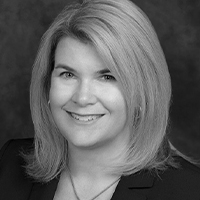Question
What roles do SLPs play in pediatric AAC service delivery?
Answer
The American Speech-Language-Hearing Association (n.p.) describes that SLPs play a central role in the screening, assessment, diagnosis, and treatment of persons requiring AAC intervention, including clinical/educational services (diagnosis, assessment, planning, and treatment), advocacy, education, administration, and research. Further specification on the roles and responsibilities of school-age children provide insight on the specific activities in which SLPs engage in providing pediatric AAC services – whether that be in school contexts or in the context of community-based early intervention services or other clinical settings.
- Complete a culturally and linguistically relevant, comprehensive assessment of the individual’s speech, language, and overall communication abilities.
- Consider the student’s need for AT, including AAC.
- Request, coordinate, or conduct a transdisciplinary and culturally and linguistically relevant AAC assessment within the child’s natural environment and educational setting that includes both the child and their caregiver(s).
- Provide trial periods with AAC systems and collect data on functionality, effectiveness, and efficiency of use.
- Provide a variety of multimodal AAC supports as appropriate, including no-tech, low-tech, and high-tech, to allow the child to communicate across various environments in the school setting.
- Collaboratively write and implement goals related to speech, language, literacy, participation, and use of AAC as part of the individualized education program (IEP) team and/or Individualize Family Service Plan (IFSP).
- Determine the need for further assessment and/or referral for other services.
- Refer to other professionals (rehabilitation engineer, AT professional, occupational therapist, physical therapist, music therapist, vision specialist, special educator, respite care worker) to facilitate access to comprehensive services, reduce barriers, and maximize opportunities for successful AAC use.
- Ensure that the student’s needs are met by others on the evaluation and treatment team.
- Provide initial and ongoing training for medical and allied health professionals, teachers, parents, support staff, and community members about AAC and the needs of students who use AAC.
- Participate in IEP or IFSP meetings.
- Ensure that AAC goals and AAC use are documented in a student’s IEP or IFSP.
- Provide transition support and documentation if AAC is deemed necessary for the student as they enter and exit the school system.
- Counsel persons who use AAC and their families/caregivers regarding communication-related issues and provide education aimed at preventing abandonment and other complications relating to AAC use.
- Counsel persons who use AAC and their families/caregivers regarding communication-related issues and provide education aimed at preventing abandonment and other complications relating to AAC use.
- Remain informed of research in the area of AAC and help advance the knowledge base regarding AAC assessment and intervention.
The ASHA Code of Ethics (2016) also specifies that SLPS should engage in only those aspects of the profession that are within their scope of competence, considering their level of education, training, and experience. SLPs with inadequate experience to provide AAC services are bound by the Code of Ethics to refer the child to an SLP with AAC experience, or, at minimum, to consult with a fellow SLP who has AAC experience to ensure appropriate service delivery.
Refer to the SpeechPathology.com course, 20Q: Pediatric Augmentative and Alternative Communication Service Delivery: Key Considerations, for more information on contemporary considerations in pediatric augmentative and alternative communication (AAC) service delivery for speech-language pathologists and related professionals.


